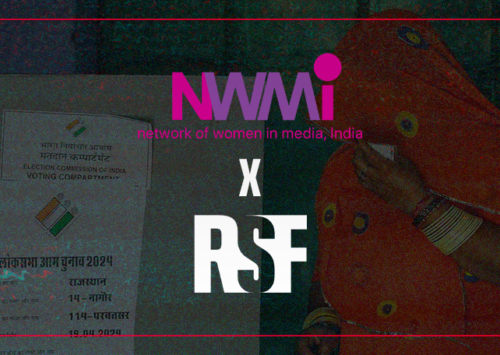FSSAI silent spectator as international bans continue to hit MDH & Everest spices
More than a month after the sale of some products of renowned Indian spice brands MDH and Everest was banned, first in Hong Kong and then in Singapore and Maldives, the Food Safety and Standards Authority of India (FSSAI) is yet to take clear stand on the controversy – neither issuing a clean chit to the popular products, nor banning them in India.
On April 22, FSSAI had simply said that it was going to test the products in question of both the companies. But over a fortnight after this statement, the FSSAI is yet to make the findings of the tests public.
Despite weeks passing, the FSSAI’s testing remains incomplete, leaving Indian consumers in a limbo.
On April 5, the Centre for Food Safety in the Hong Kong Special Administrative Region conducted routine tests on these spices. They found excessive levels of ethylene oxide in MDH’s Madras Curry Powder, Mixed Masala Powder, and Sambhar Masala. A similar issue was found in Everest’s Fish Curry Masala, making these spices unfit for human consumption. Vendors were immediately instructed to withdraw these products from sale.
Singapore and Maldives have also ordered a recall of the Everest spice mix as well, saying they contain high levels of ethylene oxide, a chemical classified as a Group 1 carcinogen by the International Agency for Research on Cancer. Ethylene oxide is mainly used in the production of other chemicals, including antifreeze. It is also used in smaller amounts as a pesticide and sterilising agent. Despite its effectiveness as a steriliser, ethylene oxide is also known for its cancer-causing properties, which include potential risks of lymphoma, leukaemia, and stomach and breast cancers.
The Pesticide Residues in Food Regulation states that food containing pesticide residue can only be sold if it is not dangerous or harmful to health. The US Food and Drug Administration is also collecting information about the two spice brands, and other countries are either scanning MDH products or outright banning them due to safety concerns.
Despite the concerns expressed by food safety regulatory organisations in different countries, in India where both MDH and Everest sell most of their production, FSSAI has lagged behind. “This delay from the FSSAI raises serious concerns about their commitment to our safety,” Faisal Ashraf, student of Jamia Milia Islamia university in Delhi tells Media India Group.
“While other countries take swift action, the silence here is deafening. A simple advisory can easily create awareness and inform consumers of the potential risks, but it seems like no one cares about us,” he adds.
In the absence of any instructions from FSSAI, Indian shopkeepers have been selling these products without any information or warning to consumers. This absence of official guidance leaves both sellers and buyers uninformed about potential risks associated with these products.
“We are unaware of the controversy surrounding the spices happening outside our borders, and we continue to sell them as we always have, moving 40 to 50 packets a day and Indian kitchens simply can’t function without them,” Deepak Kumar a shopkeeper in Sarita Vihar in south Delhi tells Media India Group.
“The lack of information leaves us uncertain about the safety of these products. We hope for clearer communication from regulatory authorities so we can confidently assure our customers of the quality and safety of the spices we offer,” he adds.
The Indian shopkeepers say that even though they are aware of the bans imposed in other countries, but they cannot stop selling products due to decisions in other countries and instead would wait for clear directions from the FSSAI about the safety of these products.
“We can’t halt the sale of our products just because they are banned in other countries. As long as they are permitted in India and the demand for spices remains high on a daily basis, we will continue selling them. Our business relies on meeting the needs of our customers, and until there is a decline in demand, we will keep supplying these spices. Ultimately, it is up to the consumers to decide what they want to purchase, and as long as they are buying, we will be here to meet their needs,” Vikram Kumar a shopkeeper in Madanpur Khadar tells Media India Group.
And in the absence of guidance from FSSAI, the consumers, too, keep on using the spices.
“I have been using MDH spices for years, and I don’t believe they can be dangerous for us,” Virneet Devi tells Media India Group as she purchases MDH spices.
“They have been a staple in our kitchen, adding flavour to our meals without any issues. With such a long history of using these spices, it is hard to imagine them posing any harm. However, with the recent controversy, I cannot help but wonder about their safety. Still, old habits die hard, and for now, I will continue using MDH spices until we receive clearer information from authorities,” she adds.
But a few consumers have decided on their own to stop using the products until there is clarity on the issue.
“When I heard about the ban, I immediately stopped using these products. It was tough, having used them for years, but health comes first. If other countries are banning them, there must be something dangerous. I have advised my friends and family against using them. When I see someone buying MDH or Everest spices, I try to explain, but they do not take it seriously. It would be better if the food agencies clarified or provided advisories, so people wouldn’t risk their health,” Rumaisa a Masters student tells Media India Group.
Amidst growing apprehensions regarding the safety of packaged spices, healthcare professionals are stepping in to provide guidance to consumers, the concerns of many in the medical community, stresses the importance of scrutinising the ingredients in masalas before making a purchase.
“As a doctor, I always stress the importance of checking the ingredients in masalas before purchasing, and, relying on packaged spices daily may not be ideal, if people still prefer consuming spices regularly, I recommend grinding them at home for freshness and purity. While spices enhance flavour, moderation is key for maintaining health,” Dr Joy Basu tells Media India Group.
In an official statement, MDH has reassured its buyers and consumers, affirming that ethylene oxide is not utilised at any stage of storing, processing, or packing their spices. This declaration comes amid growing concerns regarding the presence of ethylene oxide in certain spice products, prompting investigations and recalls in various countries.
The United States Food and Drug Administration (FDA) is also investigating the matter, while Indian authorities recently conducted inspections at the production facilities of both MDH and Everest.
In response to international criticism, both the Spices Board and the Food Safety and Standards Authority of India (FSSAI) initiated routine sampling procedures. However, as of yet, neither of these agencies nor any other government bodies have released definitive findings regarding the quality or safety of these spices.













